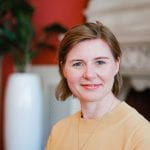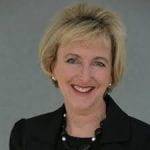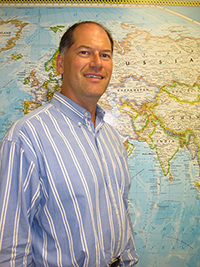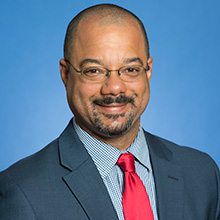Welcoming Remarks
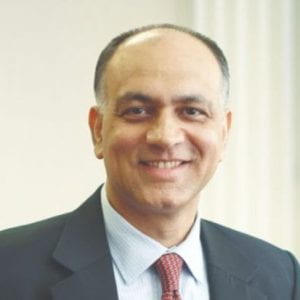 Sunil Sharma is a Distinguished Visiting Scholar at the Institute for International Economic Policy, Elliott School of International Affairs, The George Washington University, Washington DC, USA, and a Senior Associate at the Council on Economic Policies, Zurich, Switzerland. He was the Assistant Director in the IMF’s Research Department from 2015-2018, and the Director of the IMF-Singapore Regional Training Institute (STI) in Singapore from 2006-2015. Before moving to Singapore in 2006, Sunil was Chief of the IMF Institute’s Asian Division in Washington, D.C. Prior to joining the IMF in 1992, he was on the Economics faculty at the University of California, Los Angeles (UCLA).
Sunil Sharma is a Distinguished Visiting Scholar at the Institute for International Economic Policy, Elliott School of International Affairs, The George Washington University, Washington DC, USA, and a Senior Associate at the Council on Economic Policies, Zurich, Switzerland. He was the Assistant Director in the IMF’s Research Department from 2015-2018, and the Director of the IMF-Singapore Regional Training Institute (STI) in Singapore from 2006-2015. Before moving to Singapore in 2006, Sunil was Chief of the IMF Institute’s Asian Division in Washington, D.C. Prior to joining the IMF in 1992, he was on the Economics faculty at the University of California, Los Angeles (UCLA).
From 2012-2020, he was on the Governing Board of the Mysore Royal Academy (MYRA) School of Business, Mysore, India. During 2012-2018, he was a member of the Advisory Board, Sim Kee Boon Institute for Financial Economics (SKBI), Singapore Management University, Singapore, and over 2011-2015, he served on the International Advisory Board, The Institute of Global Finance, Australian School of Business, University of New South Wales, Sydney, Australia.
Sunil has a Ph.D. and an M.A. in Economics from Cornell University, a M.A. from the Delhi School of Economics, and a B.A. (Honors) from St. Stephen’s College, Delhi University. He has published widely on economic and financial topics, and his current interests include governance, systemic hazards, complex systems, international financial architecture, and the institutional structure and design of financial regulation.
Monetary Policy and Climate Change: Speakers and Chair
 Sarah Bloom Raskin, the former deputy secretary of the U.S. Department of the Treasury, was named the Colin W. Brown Distinguished Professor of the Practice of Law in 2021. She is also a senior fellow in the Duke Center on Risk. Raskin was previously a visiting professor of the practice of law at Duke and a Rubenstein Fellow.
Sarah Bloom Raskin, the former deputy secretary of the U.S. Department of the Treasury, was named the Colin W. Brown Distinguished Professor of the Practice of Law in 2021. She is also a senior fellow in the Duke Center on Risk. Raskin was previously a visiting professor of the practice of law at Duke and a Rubenstein Fellow.
From 2014 to 2017, Raskin was the second-in-command at the Treasury Department, where she was known for her pursuit of innovative solutions to enhance Americans’ shared prosperity, the resilience of the country’s critical financial infrastructure, and the defense of consumer safeguards in the financial marketplace. Earlier, Raskin was a governor of the Federal Reserve Board and a member of the Federal Open Market Committee, where she helped conduct the nation’s monetary policy and promote financial stability. She also served as commissioner of financial regulation for the State of Maryland from 2007 to 2010. She and her agency were responsible for regulating Maryland’s financial institutions during the height of the Great Recession.
Raskin, a graduate of Harvard Law School, has throughout her career worked across public and private sectors in both legal and regulatory capacities. Her work has centered on financial institutions, financial market utilities, consumer protection issues, the adaptation of financial regulatory tools as they pertain to climate risk, bolstered prudential standards, and resolution planning. Her private sector experience includes having served as managing director at the Promontory Financial Group, general counsel of the WorldWide Retail Exchange, and at the law firms of Arnold and Porter and Mayer Brown. Earlier in her career she served as banking counsel for the U.S. Senate Committee on Banking, Housing, and Urban Affairs.
She currently is a member, with Professors Lawrence Baxter and Gina-Gail Fletcher, of the Regenerative Crisis Response Committee, a group of leading experts in law, economics, and public policy focused on the use of fiscal, monetary, and regulatory policies in a climate-transitioned economy.
 Timothy Lane served as Deputy Governor from February 2009 until his retirement from the Bank of Canada in September 2022.
Timothy Lane served as Deputy Governor from February 2009 until his retirement from the Bank of Canada in September 2022.
As a member of the Bank’s Governing Council, he shared responsibility for decisions with respect to monetary policy and financial system stability, and for setting the strategic direction of the Bank. He oversaw the Bank’s funds management and currency functions — notably including the Bank’s ongoing research and analysis of developments in financial technology, crypto-assets and digital currencies.
Mr. Lane’s responsibilities as Deputy Governor covered a series of different areas. From 2014 through July 2018, he was responsible for the Bank’s analysis of international economic developments in support of monetary policy decisions — serving as the Bank’s G7 and G20 Deputy. Previously, he was responsible for overseeing the Bank’s work on financial markets (2010–13) and its analysis of Canadian economic developments (2009–10). He joined the Bank in August 2008 as an Adviser to the Governor.
Prior to joining the Bank, he served for 20 years on the staff of the International Monetary Fund (IMF) in Washington, DC. During that period, he worked on a wide range of issues and contributed to the IMF’s work on a number of countries. He has published research on various topics including monetary policy, financial crises, IMF reform, and economic transition. During 2004–05, Mr. Lane was a Visiting Fellow at the University of Oxford. He has also served as Assistant Professor of Economics at Michigan State University (1984-88) and at the University of Iowa (1983-84).
Born in Ottawa, Mr. Lane received a BA (Honours) from Carleton University in 1977 and a PhD in economics from the University of Western Ontario in 1983.
 James Talbot is Director of the International Department at the Bank of England. He is also the Chair of the Workstream on Monetary Policy of the Central Banks and Supervisors Network for Greening the Financial System (NGFS). James’ other roles at the Bank of England have included: Head of Monetary Assessment and Strategy Division, advising the MPC on Monetary Policy tools, implementation and strategy; working as a senior adviser on domestic and European macroprudential policy issues; and leading the preparation of the MPC’s quarterly UK forecast. James was UK Alternate Executive Director at the IMF from September 2008- September 2010.
James Talbot is Director of the International Department at the Bank of England. He is also the Chair of the Workstream on Monetary Policy of the Central Banks and Supervisors Network for Greening the Financial System (NGFS). James’ other roles at the Bank of England have included: Head of Monetary Assessment and Strategy Division, advising the MPC on Monetary Policy tools, implementation and strategy; working as a senior adviser on domestic and European macroprudential policy issues; and leading the preparation of the MPC’s quarterly UK forecast. James was UK Alternate Executive Director at the IMF from September 2008- September 2010.
 Alexander Barkawi is the founder and director of CEP. Prior to his decision to build up CEP, he was the managing director of SAM Indexes and thus responsible for developing the Dow Jones Sustainability Indexes (DJSI) into a key reference point for sustainability investing. Before joining SAM, Alex took the lead in internationalizing the activities of oikos – an organization that today promotes sustainability in teaching and research of economics and management at more than 40 universities worldwide. Alex is a graduate in economics (M.A.) of the University of St. Gallen, Switzerland, where he also wrote his PhD thesis on “Social Change in Egypt in the 1990s”. He grew up in Germany and Egypt and today lives in Zurich, Switzerland.
Alexander Barkawi is the founder and director of CEP. Prior to his decision to build up CEP, he was the managing director of SAM Indexes and thus responsible for developing the Dow Jones Sustainability Indexes (DJSI) into a key reference point for sustainability investing. Before joining SAM, Alex took the lead in internationalizing the activities of oikos – an organization that today promotes sustainability in teaching and research of economics and management at more than 40 universities worldwide. Alex is a graduate in economics (M.A.) of the University of St. Gallen, Switzerland, where he also wrote his PhD thesis on “Social Change in Egypt in the 1990s”. He grew up in Germany and Egypt and today lives in Zurich, Switzerland.
Financial Supervision and Climate Change: Speakers
 Sarah Dougherty focuses on financial regulations related to climate change and green banks, as well as growing finance and economics expertise within NRDC. Before joining NRDC in 2015, Dougherty worked at the Federal Reserve Bank of Atlanta where she held various roles, including as a research analyst covering the energy industry, writing monetary policy briefs, and leading economic education in public affairs. She also helped to create the Green Bank Network of existing green banks, served on the Washington, D.C., Green Bank Advisory Committee to set up a city-level green bank, and worked in Chile and Mexico to support the nations’ green finance efforts. Other previous work includes positions at the Coalition for Green Capital, C2ES (a small solar EPC firm), and the Federal Home Loan Bank of Atlanta. Dougherty holds a master’s degree in economics and is based in Atlanta.
Sarah Dougherty focuses on financial regulations related to climate change and green banks, as well as growing finance and economics expertise within NRDC. Before joining NRDC in 2015, Dougherty worked at the Federal Reserve Bank of Atlanta where she held various roles, including as a research analyst covering the energy industry, writing monetary policy briefs, and leading economic education in public affairs. She also helped to create the Green Bank Network of existing green banks, served on the Washington, D.C., Green Bank Advisory Committee to set up a city-level green bank, and worked in Chile and Mexico to support the nations’ green finance efforts. Other previous work includes positions at the Coalition for Green Capital, C2ES (a small solar EPC firm), and the Federal Home Loan Bank of Atlanta. Dougherty holds a master’s degree in economics and is based in Atlanta.
 Paul Hiebert heads the Systemic Risk and Financial Institutions Division of the European Central Bank (ECB). In this role, he leads systemic risk analysis for the euro area feeding into the ECB’s flagship Financial Stability Review, as well as macroprudential policy for the largest euro area banks. Since 2019 he has been leading climate-related risk and financial stability analysis with the corresponding publication of the ECB’s and ESRB’s annual report. His current role builds on over 20 years of experience within the ECB, the International Monetary Fund, the Reserve Bank of Australia and the Canadian Department of Finance in various capacities—spanning economic, financial and policy functions for a wide range of countries. He has published on a diverse set of topics, including financial cycles, global banking, climate change issues, macroprudential policy, housing markets, and fiscal policy. He holds an M.A. in Economics from McGill University in Montréal.
Paul Hiebert heads the Systemic Risk and Financial Institutions Division of the European Central Bank (ECB). In this role, he leads systemic risk analysis for the euro area feeding into the ECB’s flagship Financial Stability Review, as well as macroprudential policy for the largest euro area banks. Since 2019 he has been leading climate-related risk and financial stability analysis with the corresponding publication of the ECB’s and ESRB’s annual report. His current role builds on over 20 years of experience within the ECB, the International Monetary Fund, the Reserve Bank of Australia and the Canadian Department of Finance in various capacities—spanning economic, financial and policy functions for a wide range of countries. He has published on a diverse set of topics, including financial cycles, global banking, climate change issues, macroprudential policy, housing markets, and fiscal policy. He holds an M.A. in Economics from McGill University in Montréal.
 Mark Levonian was most recently Managing Director and Global Head for Enterprise Economics and Risk Analysis at Promontory Financial Group. He was formerly Senior Deputy Comptroller for Economics at the US Office of the Comptroller of the Currency (OCC), where he served as a key advisor to the Comptroller before, during, and after the global financial crisis. Mark oversaw quantitative examination support and policy research for the OCC and was closely involved in policy responses to the financial crisis, including the development of bank stress testing. As a senior regulatory official and economist, he led or participated in various Basel Committee initiatives related to economic modeling and played a leading role in the development of rules and guidance for multiple generations of the Basel capital framework. Prior to joining the OCC, Mark was Vice President for Banking Supervision and Regulation and Economic Research Officer at the Federal Reserve Bank of San Francisco, Manager of the Banking Studies Department at the New York Fed, Lecturer in Finance at the University of California’s Haas School of Business, and Senior Economist at the Reserve Bank of Australia. He has been an adviser/consultant to the World Bank, the IMF, and the central banks of Russia and Belarus.
Mark Levonian was most recently Managing Director and Global Head for Enterprise Economics and Risk Analysis at Promontory Financial Group. He was formerly Senior Deputy Comptroller for Economics at the US Office of the Comptroller of the Currency (OCC), where he served as a key advisor to the Comptroller before, during, and after the global financial crisis. Mark oversaw quantitative examination support and policy research for the OCC and was closely involved in policy responses to the financial crisis, including the development of bank stress testing. As a senior regulatory official and economist, he led or participated in various Basel Committee initiatives related to economic modeling and played a leading role in the development of rules and guidance for multiple generations of the Basel capital framework. Prior to joining the OCC, Mark was Vice President for Banking Supervision and Regulation and Economic Research Officer at the Federal Reserve Bank of San Francisco, Manager of the Banking Studies Department at the New York Fed, Lecturer in Finance at the University of California’s Haas School of Business, and Senior Economist at the Reserve Bank of Australia. He has been an adviser/consultant to the World Bank, the IMF, and the central banks of Russia and Belarus.
Closing Remarks
 William White is currently a Senior Fellow at the C.D. Howe Institute in Toronto. He is also an Advisor to the Council on Economic Policies. From 2009 until March 2018, he served as Chair of the Economic and Development Review Committee at the OECD in Paris. Prior to that, he spent fourteen years as Economic Adviser at the Bank for International Settlements (BIS) in Basel. In that role, he was responsible for all BIS research, data collection, and the organization of meetings for central bankers from around the world. Before joining the BIS in 1994, he was the Deputy Governor responsible for international affairs at the Bank of Canada in Ottawa.
William White is currently a Senior Fellow at the C.D. Howe Institute in Toronto. He is also an Advisor to the Council on Economic Policies. From 2009 until March 2018, he served as Chair of the Economic and Development Review Committee at the OECD in Paris. Prior to that, he spent fourteen years as Economic Adviser at the Bank for International Settlements (BIS) in Basel. In that role, he was responsible for all BIS research, data collection, and the organization of meetings for central bankers from around the world. Before joining the BIS in 1994, he was the Deputy Governor responsible for international affairs at the Bank of Canada in Ottawa.
In addition to publishing widely, Mr. White’s other activities have included membership of the Issing Committee, advising Chancellor Merkel on G20 issues. In addition to prizes awarded in Europe, in 2016 Mr. White received in Washington, D.C., the Adam Smith Award, the highest award of the U.S. National Association of Business Economics (NABE).
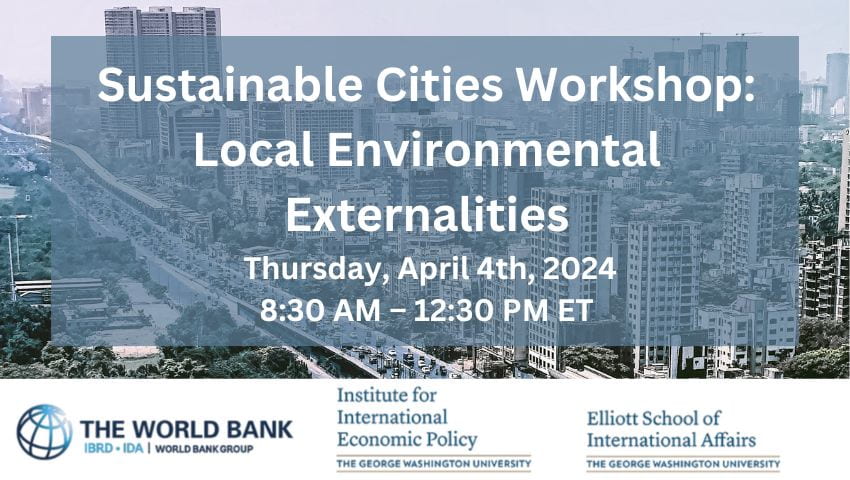
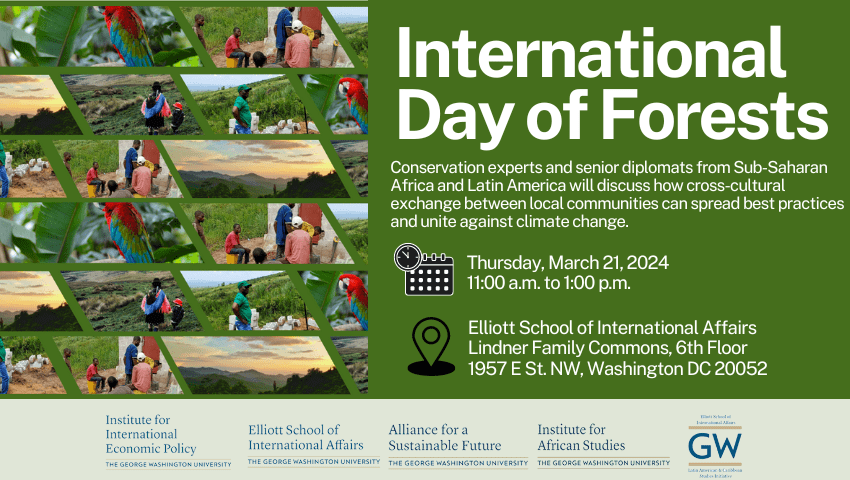



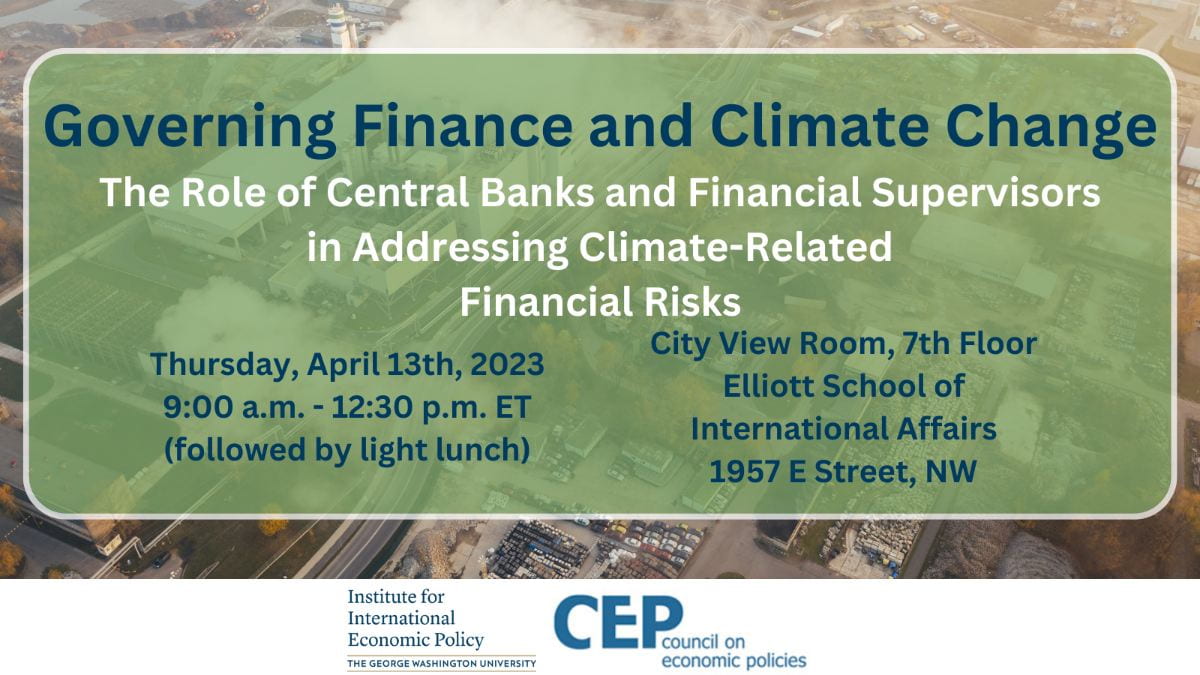
 Sunil Sharma is a Distinguished Visiting Scholar at the Institute for International Economic Policy, Elliott School of International Affairs, The George Washington University, Washington DC, USA, and a Senior Associate at the Council on Economic Policies, Zurich, Switzerland. He was the Assistant Director in the IMF’s Research Department from 2015-2018, and the Director of the IMF-Singapore Regional Training Institute (STI) in Singapore from 2006-2015. Before moving to Singapore in 2006, Sunil was Chief of the IMF Institute’s Asian Division in Washington, D.C. Prior to joining the IMF in 1992, he was on the Economics faculty at the University of California, Los Angeles (UCLA).
Sunil Sharma is a Distinguished Visiting Scholar at the Institute for International Economic Policy, Elliott School of International Affairs, The George Washington University, Washington DC, USA, and a Senior Associate at the Council on Economic Policies, Zurich, Switzerland. He was the Assistant Director in the IMF’s Research Department from 2015-2018, and the Director of the IMF-Singapore Regional Training Institute (STI) in Singapore from 2006-2015. Before moving to Singapore in 2006, Sunil was Chief of the IMF Institute’s Asian Division in Washington, D.C. Prior to joining the IMF in 1992, he was on the Economics faculty at the University of California, Los Angeles (UCLA). Sarah Bloom Raskin, the former deputy secretary of the U.S. Department of the Treasury, was named the Colin W. Brown Distinguished Professor of the Practice of Law in 2021. She is also a senior fellow in the Duke Center on Risk. Raskin was previously a visiting professor of the practice of law at Duke and a Rubenstein Fellow.
Sarah Bloom Raskin, the former deputy secretary of the U.S. Department of the Treasury, was named the Colin W. Brown Distinguished Professor of the Practice of Law in 2021. She is also a senior fellow in the Duke Center on Risk. Raskin was previously a visiting professor of the practice of law at Duke and a Rubenstein Fellow. Timothy Lane served as Deputy Governor from February 2009 until his retirement from the Bank of Canada in September 2022.
Timothy Lane served as Deputy Governor from February 2009 until his retirement from the Bank of Canada in September 2022. James Talbot is Director of the International Department at the Bank of England. He is also the Chair of the Workstream on Monetary Policy of the Central Banks and Supervisors Network for Greening the Financial System (NGFS). James’ other roles at the Bank of England have included: Head of Monetary Assessment and Strategy Division, advising the MPC on Monetary Policy tools, implementation and strategy; working as a senior adviser on domestic and European macroprudential policy issues; and leading the preparation of the MPC’s quarterly UK forecast. James was UK Alternate Executive Director at the IMF from September 2008- September 2010.
James Talbot is Director of the International Department at the Bank of England. He is also the Chair of the Workstream on Monetary Policy of the Central Banks and Supervisors Network for Greening the Financial System (NGFS). James’ other roles at the Bank of England have included: Head of Monetary Assessment and Strategy Division, advising the MPC on Monetary Policy tools, implementation and strategy; working as a senior adviser on domestic and European macroprudential policy issues; and leading the preparation of the MPC’s quarterly UK forecast. James was UK Alternate Executive Director at the IMF from September 2008- September 2010. Alexander Barkawi is the founder and director of CEP. Prior to his decision to build up CEP, he was the managing director of SAM Indexes and thus responsible for developing the Dow Jones Sustainability Indexes (DJSI) into a key reference point for sustainability investing. Before joining SAM, Alex took the lead in internationalizing the activities of oikos – an organization that today promotes sustainability in teaching and research of economics and management at more than 40 universities worldwide. Alex is a graduate in economics (M.A.) of the University of St. Gallen, Switzerland, where he also wrote his PhD thesis on “Social Change in Egypt in the 1990s”. He grew up in Germany and Egypt and today lives in Zurich, Switzerland.
Alexander Barkawi is the founder and director of CEP. Prior to his decision to build up CEP, he was the managing director of SAM Indexes and thus responsible for developing the Dow Jones Sustainability Indexes (DJSI) into a key reference point for sustainability investing. Before joining SAM, Alex took the lead in internationalizing the activities of oikos – an organization that today promotes sustainability in teaching and research of economics and management at more than 40 universities worldwide. Alex is a graduate in economics (M.A.) of the University of St. Gallen, Switzerland, where he also wrote his PhD thesis on “Social Change in Egypt in the 1990s”. He grew up in Germany and Egypt and today lives in Zurich, Switzerland. Sarah Dougherty focuses on financial regulations related to climate change and green banks, as well as growing finance and economics expertise within NRDC. Before joining NRDC in 2015, Dougherty worked at the Federal Reserve Bank of Atlanta where she held various roles, including as a research analyst covering the energy industry, writing monetary policy briefs, and leading economic education in public affairs. She also helped to create the Green Bank Network of existing green banks, served on the Washington, D.C., Green Bank Advisory Committee to set up a city-level green bank, and worked in Chile and Mexico to support the nations’ green finance efforts. Other previous work includes positions at the Coalition for Green Capital, C2ES (a small solar EPC firm), and the Federal Home Loan Bank of Atlanta. Dougherty holds a master’s degree in economics and is based in Atlanta.
Sarah Dougherty focuses on financial regulations related to climate change and green banks, as well as growing finance and economics expertise within NRDC. Before joining NRDC in 2015, Dougherty worked at the Federal Reserve Bank of Atlanta where she held various roles, including as a research analyst covering the energy industry, writing monetary policy briefs, and leading economic education in public affairs. She also helped to create the Green Bank Network of existing green banks, served on the Washington, D.C., Green Bank Advisory Committee to set up a city-level green bank, and worked in Chile and Mexico to support the nations’ green finance efforts. Other previous work includes positions at the Coalition for Green Capital, C2ES (a small solar EPC firm), and the Federal Home Loan Bank of Atlanta. Dougherty holds a master’s degree in economics and is based in Atlanta. Paul Hiebert heads the Systemic Risk and Financial Institutions Division of the European Central Bank (ECB). In this role, he leads systemic risk analysis for the euro area feeding into the ECB’s flagship Financial Stability Review, as well as macroprudential policy for the largest euro area banks. Since 2019 he has been leading climate-related risk and financial stability analysis with the corresponding publication of the ECB’s and ESRB’s annual report. His current role builds on over 20 years of experience within the ECB, the International Monetary Fund, the Reserve Bank of Australia and the Canadian Department of Finance in various capacities—spanning economic, financial and policy functions for a wide range of countries. He has published on a diverse set of topics, including financial cycles, global banking, climate change issues, macroprudential policy, housing markets, and fiscal policy. He holds an M.A. in Economics from McGill University in Montréal.
Paul Hiebert heads the Systemic Risk and Financial Institutions Division of the European Central Bank (ECB). In this role, he leads systemic risk analysis for the euro area feeding into the ECB’s flagship Financial Stability Review, as well as macroprudential policy for the largest euro area banks. Since 2019 he has been leading climate-related risk and financial stability analysis with the corresponding publication of the ECB’s and ESRB’s annual report. His current role builds on over 20 years of experience within the ECB, the International Monetary Fund, the Reserve Bank of Australia and the Canadian Department of Finance in various capacities—spanning economic, financial and policy functions for a wide range of countries. He has published on a diverse set of topics, including financial cycles, global banking, climate change issues, macroprudential policy, housing markets, and fiscal policy. He holds an M.A. in Economics from McGill University in Montréal. Mark Levonian was most recently Managing Director and Global Head for Enterprise Economics and Risk Analysis at Promontory Financial Group. He was formerly Senior Deputy Comptroller for Economics at the US Office of the Comptroller of the Currency (OCC), where he served as a key advisor to the Comptroller before, during, and after the global financial crisis. Mark oversaw quantitative examination support and policy research for the OCC and was closely involved in policy responses to the financial crisis, including the development of bank stress testing. As a senior regulatory official and economist, he led or participated in various Basel Committee initiatives related to economic modeling and played a leading role in the development of rules and guidance for multiple generations of the Basel capital framework. Prior to joining the OCC, Mark was Vice President for Banking Supervision and Regulation and Economic Research Officer at the Federal Reserve Bank of San Francisco, Manager of the Banking Studies Department at the New York Fed, Lecturer in Finance at the University of California’s Haas School of Business, and Senior Economist at the Reserve Bank of Australia. He has been an adviser/consultant to the World Bank, the IMF, and the central banks of Russia and Belarus.
Mark Levonian was most recently Managing Director and Global Head for Enterprise Economics and Risk Analysis at Promontory Financial Group. He was formerly Senior Deputy Comptroller for Economics at the US Office of the Comptroller of the Currency (OCC), where he served as a key advisor to the Comptroller before, during, and after the global financial crisis. Mark oversaw quantitative examination support and policy research for the OCC and was closely involved in policy responses to the financial crisis, including the development of bank stress testing. As a senior regulatory official and economist, he led or participated in various Basel Committee initiatives related to economic modeling and played a leading role in the development of rules and guidance for multiple generations of the Basel capital framework. Prior to joining the OCC, Mark was Vice President for Banking Supervision and Regulation and Economic Research Officer at the Federal Reserve Bank of San Francisco, Manager of the Banking Studies Department at the New York Fed, Lecturer in Finance at the University of California’s Haas School of Business, and Senior Economist at the Reserve Bank of Australia. He has been an adviser/consultant to the World Bank, the IMF, and the central banks of Russia and Belarus. William White is currently a Senior Fellow at the C.D. Howe Institute in Toronto. He is also an Advisor to the Council on Economic Policies. From 2009 until March 2018, he served as Chair of the Economic and Development Review Committee at the OECD in Paris. Prior to that, he spent fourteen years as Economic Adviser at the Bank for International Settlements (BIS) in Basel. In that role, he was responsible for all BIS research, data collection, and the organization of meetings for central bankers from around the world. Before joining the BIS in 1994, he was the Deputy Governor responsible for international affairs at the Bank of Canada in Ottawa.
William White is currently a Senior Fellow at the C.D. Howe Institute in Toronto. He is also an Advisor to the Council on Economic Policies. From 2009 until March 2018, he served as Chair of the Economic and Development Review Committee at the OECD in Paris. Prior to that, he spent fourteen years as Economic Adviser at the Bank for International Settlements (BIS) in Basel. In that role, he was responsible for all BIS research, data collection, and the organization of meetings for central bankers from around the world. Before joining the BIS in 1994, he was the Deputy Governor responsible for international affairs at the Bank of Canada in Ottawa.

 Kevin Cromar is the Director of the Health, Environment, and Policy Program at the Marron Institute of Urban Management and an Associate Professor of Environmental Medicine and Population Health at New York University Grossman School of Medicine. His research program works at the intersection of scientific research and public policy in order to generate the knowledge needed to improve health and quality of life. He has a BS in Neuroscience from Brigham Young University and an MS and PhD in Environmental Health Science from New York University.
Kevin Cromar is the Director of the Health, Environment, and Policy Program at the Marron Institute of Urban Management and an Associate Professor of Environmental Medicine and Population Health at New York University Grossman School of Medicine. His research program works at the intersection of scientific research and public policy in order to generate the knowledge needed to improve health and quality of life. He has a BS in Neuroscience from Brigham Young University and an MS and PhD in Environmental Health Science from New York University. 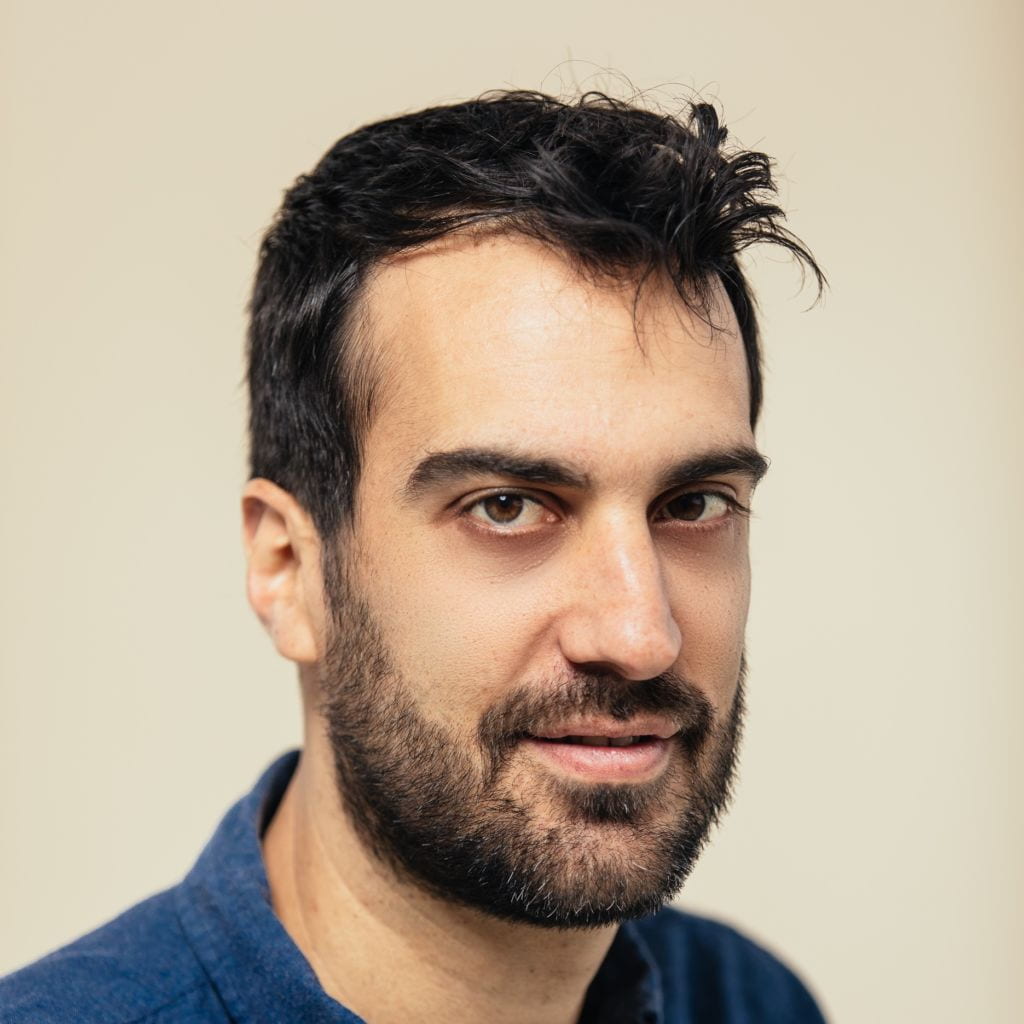 Noah Scovronick is a professor of Environmental Health at the Rollins School of Public Health at Emory University. His areas of interest include air pollution, climate and health, and environmental health. He has a BS from Emory University, a MS from University of Cape Town, an MS and a PhD from the London School fo Hygiene and Tropical Medicine.
Noah Scovronick is a professor of Environmental Health at the Rollins School of Public Health at Emory University. His areas of interest include air pollution, climate and health, and environmental health. He has a BS from Emory University, a MS from University of Cape Town, an MS and a PhD from the London School fo Hygiene and Tropical Medicine.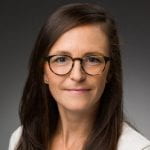
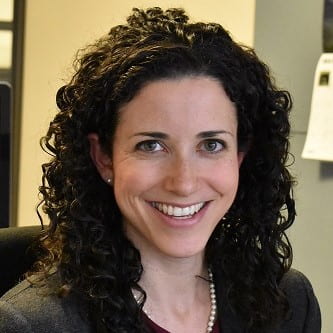 Susan Anenberg is the Director of the Climate and Health Institute and an Associate Professor of Environmental and Occupational Health and of Global Health at the George Washington University Milken Institute School of Public Health. Dr. Anenberg’s research focuses on the health implications of air pollution and climate change, from local to global scales. She currently serves on the U.S. Environmental Protection Agency’s Science Advisory Board and Clean Air Act Advisory Committee, the World Health Organization’s Global Air Pollution and Health Technical Advisory Group, and the National Academy of Science’s Committee to Advise the U.S. Global Change Research Program. She also serves as Secretary of the GeoHealth section of the American Geophysical Union. Previously, Dr. Anenberg was a Co-Founder and Partner at Environmental Health Analytics, LLC, the Deputy Managing Director for Recommendations at the U.S. Chemical Safety Board, an environmental scientist at the U.S. Environmental Protection Agency, and a senior advisor for clean cookstove initiatives at the U.S. State Department.
Susan Anenberg is the Director of the Climate and Health Institute and an Associate Professor of Environmental and Occupational Health and of Global Health at the George Washington University Milken Institute School of Public Health. Dr. Anenberg’s research focuses on the health implications of air pollution and climate change, from local to global scales. She currently serves on the U.S. Environmental Protection Agency’s Science Advisory Board and Clean Air Act Advisory Committee, the World Health Organization’s Global Air Pollution and Health Technical Advisory Group, and the National Academy of Science’s Committee to Advise the U.S. Global Change Research Program. She also serves as Secretary of the GeoHealth section of the American Geophysical Union. Previously, Dr. Anenberg was a Co-Founder and Partner at Environmental Health Analytics, LLC, the Deputy Managing Director for Recommendations at the U.S. Chemical Safety Board, an environmental scientist at the U.S. Environmental Protection Agency, and a senior advisor for clean cookstove initiatives at the U.S. State Department. Jay Shambaugh is Professor of Economics and International Affairs, and Director of the Institute for International Economic Policy at the Elliott School of International Affairs, George Washington University. His area of research is macroeconomics and international economics. He has had two stints in public service. He served as a Member of the White House Council of Economic Advisors from 2015-2017. Earlier, he served on the staff of the CEA as a Senior Economist for International Economics and then as the Chief Economist. He also spent 3 years as the Director of the Hamilton Project at the Brookings Institution. Jay is also a Faculty Research Fellow at the NBER and Non-Resident Senior Fellow in Economic Studies at Brookings. Prior to joining the faculty at George Washington, Jay taught at Georgetown and Dartmouth and was a visiting scholar at the IMF. He received his Ph.D. in economics from the University of California at Berkeley, an M.A. from the Fletcher School at Tufts, and a B.A. from Yale University.
Jay Shambaugh is Professor of Economics and International Affairs, and Director of the Institute for International Economic Policy at the Elliott School of International Affairs, George Washington University. His area of research is macroeconomics and international economics. He has had two stints in public service. He served as a Member of the White House Council of Economic Advisors from 2015-2017. Earlier, he served on the staff of the CEA as a Senior Economist for International Economics and then as the Chief Economist. He also spent 3 years as the Director of the Hamilton Project at the Brookings Institution. Jay is also a Faculty Research Fellow at the NBER and Non-Resident Senior Fellow in Economic Studies at Brookings. Prior to joining the faculty at George Washington, Jay taught at Georgetown and Dartmouth and was a visiting scholar at the IMF. He received his Ph.D. in economics from the University of California at Berkeley, an M.A. from the Fletcher School at Tufts, and a B.A. from Yale University. Daniel Yi Xu is a Professor of Economics at Duke University and Research Associate at the National Bureau of Economic Research. Co-editor of the Review of Economics and Statistics. He is also the associate editor of the Rand Journal of Economics and AEJ: Applied. His research focus tends to focus on Productivity/Innovation, International Trade, and Industrial Organization. His website:
Daniel Yi Xu is a Professor of Economics at Duke University and Research Associate at the National Bureau of Economic Research. Co-editor of the Review of Economics and Statistics. He is also the associate editor of the Rand Journal of Economics and AEJ: Applied. His research focus tends to focus on Productivity/Innovation, International Trade, and Industrial Organization. His website: 
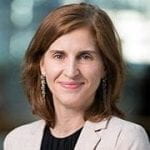

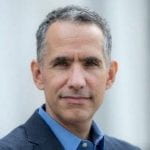




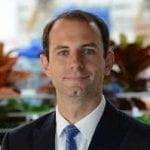



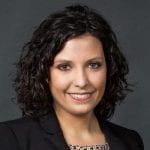


 Laveesh Bhandari is a Senior Fellow at CSEP. Laveesh will lead and develop the climate change capability at CSEP. In addition, he will help define the broad macro agenda and advise on the sub-national reform. Dr Bhandari is an economist, entrepreneur and an environmentalist. He is currently the Director of Indicus Foundation and leads its Environment and Sustainable Livelihoods initiative. Laveesh has published widely on subjects related to sustainable livelihoods, industrial, economic and social reforms in India, economic geography and financial inclusion. He received his PhD in economics from Boston University for which he was awarded the Best thesis in International Economics. He has taught economics in Boston University and IIT Delhi. He has been the managing editor of Journal of Emerging Market Finance, and worked at National Council of Applied Economic Research (NCAER), New Delhi. He has built, seeded, and exited from three companies in the research, analytics and digital domain.
Laveesh Bhandari is a Senior Fellow at CSEP. Laveesh will lead and develop the climate change capability at CSEP. In addition, he will help define the broad macro agenda and advise on the sub-national reform. Dr Bhandari is an economist, entrepreneur and an environmentalist. He is currently the Director of Indicus Foundation and leads its Environment and Sustainable Livelihoods initiative. Laveesh has published widely on subjects related to sustainable livelihoods, industrial, economic and social reforms in India, economic geography and financial inclusion. He received his PhD in economics from Boston University for which he was awarded the Best thesis in International Economics. He has taught economics in Boston University and IIT Delhi. He has been the managing editor of Journal of Emerging Market Finance, and worked at National Council of Applied Economic Research (NCAER), New Delhi. He has built, seeded, and exited from three companies in the research, analytics and digital domain.


